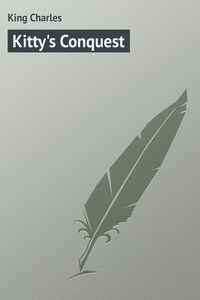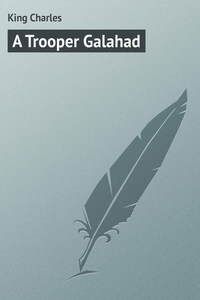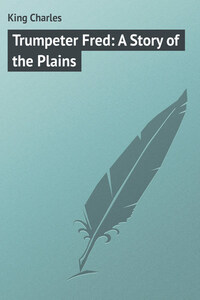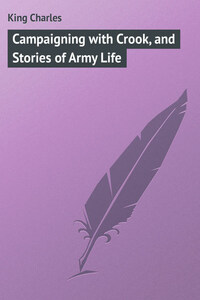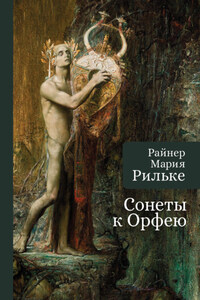It was just after Christmas, and discontentedly enough I had left my cosy surroundings in New Orleans, to take a business-trip through the counties on the border-line between Tennessee and northern Mississippi and Alabama. One sunny afternoon I found myself on the "freight and passenger" of what was termed "The Great Southern Mail Route." We had been trundling slowly, sleepily along ever since the conductor's "all aboard!" after dinner; had met the Mobile Express at Corinth when the shadows were already lengthening upon the ruddy, barren-looking landscape, and now, with Iuka just before us, and the warning whistle of the engine shrieking in our ears with a discordant pertinacity attained only on our Southern railroads, I took a last glance at the sun just disappearing behind the distant forest in our wake, drew the last breath of life, from my cigar, and then, taking advantage of the halt at the station, strolled back from the dinginess of the smoking-car to more comfortable quarters in the rear.
There were only three passenger-cars on the train, and, judging from the scarcity of occupants, one would have been enough. Elbowing my way through the gaping, lazy swarms of unsavory black humanity on the platform, and the equally repulsive-looking knots of "poor white trash," the invariable features of every country stopping-place south of Mason and Dixon, I reached the last car, and entering, chose one of a dozen empty seats, and took a listless look at my fellow-passengers, – six in all, – and of them, two only worth a second glance.
One, a young, perhaps very young, lady, so girlish, petite, and pretty she looked even after the long day's ride in a sooty car. Her seat was some little distance from the one into which I had dropped, but that was because the other party to be depicted was installed within two of her, and, with that indefinable sense of repulsion which induces all travellers, strangers to one another, to get as far apart as possible on entering a car, I had put four seats 'twixt him and me, – and afterwards wished I hadn't.
It was rude to turn and stare at a young girl, – travelling alone, too, as she appeared to be. I did it involuntarily the first time, and found myself repeating the performance again and again, simply because I couldn't help it, – she looked prettier and prettier every time.
A fair, oval, tiny face; a somewhat supercilious nose, and not-the-least-so mouth; a mouth, on the contrary, that even though its pretty lips were closed, gave one the intangible yet positive assurance of white and regular teeth; eyes whose color I could not see because their drooping lids were fringed with heavy curving lashes, but which subsequently turned out to be a soft, dark gray; and hair! – hair that made one instinctively gasp with admiration, and exclaim (mentally), "If it's only real!" – hair that rose in heavy golden masses above and around the diminutive ears, almost hiding them from view, and fell in braids (not braids either, because it wasn't braided) and rolls – only that sounds breakfasty – and masses again, – it must do for both, – heavy golden masses and rolls and waves and straggling offshoots and disorderly delightfulness all down the little lady's neck, and, landing in a lump on the back of the seat, seemed to come surging up to the top again, ready for another tumble.
It looked as though it hadn't been "fixed" since the day before, and yet as though it would be a shame to touch it; and was surmounted, "sat upon," one might say, by the jauntiest of little travelling hats of some dark material (don't expect a bachelor, and an elderly one at that, to be explicit on such a point), this in turn being topped by the pertest little mite of a feather sticking bolt upright from a labyrinth of beads, bows, and buckles at the side.
More of this divinity was not to be viewed from my post of observation, as all below the fragile white throat with its dainty collar and the handsome fur "boa," thrown loosely back on account of the warmth of the car, was undergoing complete occultation by the seats in front; yet enough was visible to impress one with a longing to become acquainted with the diminutive entirety, and to convey an idea of cultivation and refinement somewhat unexpected on that particular train, and in that utterly unlovely section of the country.
Naturally I wondered who she was; where she was going; how it happened that she, so young, so innocent, so be-petted and be-spoilt in appearance, should be journeying alone through the thinly settled counties of upper Mississippi. Had she been a "through" passenger, she would have taken the express, not this grimy, stop-at-every-shanty, slow-going old train on which we were creeping eastward.
In fact, the more I peeped, the more I marvelled; and I found myself almost unconsciously inaugurating a detective movement with a view to ascertaining her identity.
